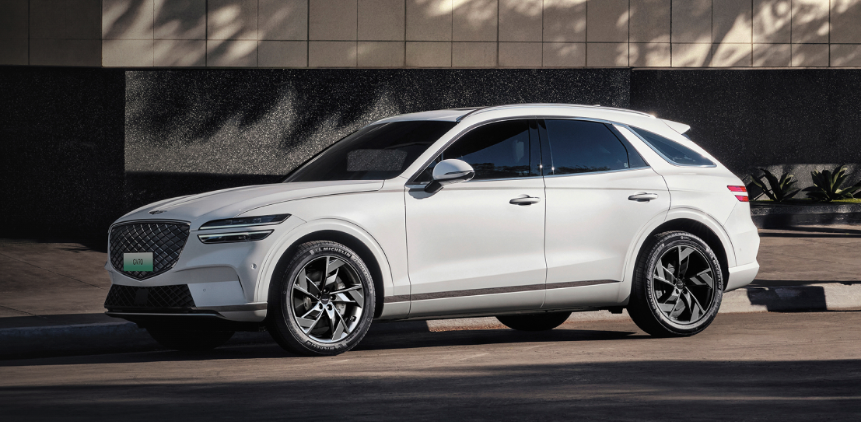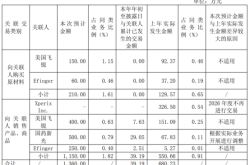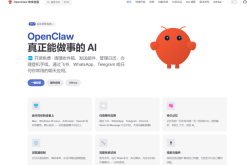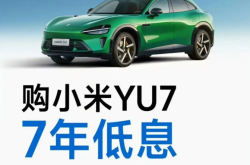Second-tier luxury brands becoming mere "sidekicks" in the auto market?
![]() 11/05 2024
11/05 2024
![]() 647
647
The era of easy money is truly over
In the era of traditional gasoline-powered vehicles, a portion of potential customers for luxury brands BBA (Benz, BMW, Audi) would choose second-tier luxury brands after comprehensively considering factors such as price, performance, and personalization.
However, with the transformation of the automotive market towards electrification and intelligence, Chinese automotive brands have risen rapidly and continue to seize the high-end market. Even BBA has to face a declining market, and second-tier luxury brands, known for their "small but beautiful" characteristics, are completely becoming mere "sidekicks" in the auto market.

Image source: Genesis
"Genesis will draw on the operating experience and lessons of the past few years. The brand will not exit the Chinese market; instead, it will take this as an opportunity to regroup and increase investment in the Chinese market." Not long ago, Zhu Jiang, CEO of Genesis China, responded to outside speculation about Genesis' imminent exit from China during the launch event of the new Genesis GV70. Data shows that in the first half of 2024, Genesis' sales in China were only 590 units.
Genesis is not an isolated case. Second-tier luxury brands, including Infiniti, Cadillac, Jaguar Land Rover, Lexus, Acura, etc., are all facing the fate of further market compression.
Second-tier luxury brands are generally out of favor
On the last day of October, Germany's three major automotive groups - Mercedes-Benz, BMW, and Volkswagen - successively released their third-quarter financial reports. These German automotive giants unanimously pointed out in their financial reports that except for the Chinese market, their sales volumes in other regions of the world generally increased. The decline in sales in the Chinese market even dragged down the overall sales volume in the third quarter.
Even powerful brands like Mercedes-Benz and BMW cannot withstand the decline in the Chinese market, making the position of second-tier luxury brands increasingly awkward.
China is currently the world's largest automotive market, and no automotive brand is willing to give up this market. However, for second-tier luxury automotive brands, the current reality is indeed too difficult.
As a Korean luxury automotive brand, Genesis, known as the "Korean Bentley," entered the Chinese market under the names "Rohens" in 2008 and "Genesis" in 2014, but unfortunately, its sales in China did not meet expectations. In 2018, "Genesis" was renamed "Genesis" and relaunched in China. However, judging from sales in the past two years, Genesis still has not met expectations. In 2023, Genesis sold only 1,558 vehicles in China throughout the year, and sales in the first half of 2024 fell to 590 vehicles. Compulsory traffic accident liability insurance data shows that in the first three quarters of this year, its sales in China fell by 24.8% year-on-year.
In fact, due to the continuous decline in sales, Infiniti also faced questions about whether it would exit the Chinese market two years ago. At that time, Infiniti also gave the answer that it would not abandon the Chinese market. However, by September this year, Infiniti's sales were only 220 units.
The shrinking market has gradually eroded the brand premium ability of second-tier luxury brands. To seize market share, Cadillac adopted significant price reductions when launching new vehicles to stimulate the market. On September 28, Cadillac's new XT5 was officially launched, adopting a "limited-time fixed price" strategy with pricing ranging from 265,900 to 335,900 yuan. This represents a maximum decrease of 130,000 yuan compared to the official guide price.
Choosing to sell at a reduced price is related to Cadillac's currently declining market situation. In 2021, Cadillac achieved a record annual sales volume in China of 233,100 units, but it has since begun to decline. In 2023, Cadillac's insured sales volume was 178,000 units, a year-on-year decrease of 4.24%. In the first half of 2024, Cadillac's sales volume fell to 62,000 units, a year-on-year plunge of 28%. Nowadays, it is difficult for Cadillac to sell over 10,000 units per month. Sales in August this year fell to 6,500 units, and sales in September were 7,063 units, far from the previous monthly sales of 20,000 units.
Lincoln also showed a similar sales trend. From January to September this year, Lincoln's cumulative sales volume was 39,749 units, a year-on-year decrease of 14.3%. In terms of imported vehicles, according to data from the China Passenger Car Association, Lincoln's imported vehicle volume from January to August was 10,274 units, with a year-on-year decrease of up to 39%, making it the brand with the highest decrease in imported vehicles. The number of imported vehicles in July and August was only in the double digits.
In 2021, Lincoln also achieved sales of 91,600 units. However, in 2022, Lincoln's annual sales volume decreased to 79,300 units, a drop of 13.43%. In 2023, Lincoln's sales volume in China further declined to 73,000 units. Judging from this year's sales data, a significant decline is still inevitable.
Chinese brands fiercely attacking the high-end market
If the intelligence of a luxury vehicle model is only superficial, it may become increasingly difficult to impress today's discerning consumers.
In recent years, the overall sales volume of the Chinese luxury vehicle market has basically been around 3 to 3.1 million units. As the market ebbs and flows, brands such as Li Auto, NIO, Thalys, and others have begun to seize market share that originally belonged to BBA and second-tier luxury brands.
Under the industry trends of electrification and intelligence, Chinese brands have risen rapidly, and the boundaries between luxury brands have become increasingly blurred. Currently, automotive brands such as Li Auto and NIO have model prices exceeding 300,000 yuan and have stable market performance.
Data shows that the number of chips used in electric vehicles priced above 300,000 yuan in China has approached 1,000, more than twice that of traditional gasoline vehicles. Compared to traditional gasoline vehicles, smart electric vehicles provide consumers with a completely different experience.
According to a survey report jointly released by the China EV100 and McKinsey, due to the popularity of high-level autonomous driving functions in new energy vehicles in China, both owners of economy and high-end brand new energy vehicles have expressed their willingness to pay for high-level autonomous driving. Among them, 53% of high-end new energy vehicle owners are willing to switch brands for autonomous driving functions.
In terms of actual sales, Li Auto achieved cumulative deliveries of 1 million vehicles in only 58 months. In the third quarter of 2024, Li Auto delivered 152,831 vehicles, a year-on-year increase of 45.4%. According to Li Auto's third-quarter financial report for 2024 released on October 31, both quarterly deliveries and revenue hit record highs. Among them, quarterly net profit reached 2.8 billion yuan, achieving profits for eight consecutive quarters.
From January to September, NIO delivered a total of 149,281 new vehicles, a year-on-year increase of 35.7%. To date, NIO has cumulatively delivered 598,875 new vehicles.
Sales and production data for September show that Thalys sold 37,407 new energy vehicles in September, a year-on-year increase of 265.09%. Among them, the AITO M9, jointly developed with Huawei, recently achieved the 100,000th offline unit.
"AITO brings users a continuously leading smart travel experience with the concept of traditional luxury + technological luxury," said Kang Bo, Vice President of Thalys Group, at the 2024 Global New Energy Vehicle Cooperation and Development (Shanghai) Forum. "Since its launch in December 2021, AITO has successively launched three high-end smart luxury electric vehicles, the M5, M7, and M9, which have been well-received by the market and loved by users. Among them, since its launch, cumulative pre-orders for the AITO M9 have exceeded 160,000 units, making it the sales champion for vehicles priced above 500,000 yuan in China's luxury market for six consecutive months."
With Huawei's support, Thalys, whose sales have soared rapidly, has achieved revenue of 100 billion yuan. According to Thalys' latest financial report, operating revenue for the first three quarters was 106.627 billion yuan, net profit was 4.038 billion yuan, and non-GAAP net profit was between 3.2 billion and 3.8 billion yuan.
In 2023, the cumulative sales volume of Denza D9 reached 127,840 units, surpassing established joint venture competitors such as Buick GL8, Honda Odyssey, and Toyota Sienna, becoming the annual sales champion among all types of MPVs.
Second-tier luxury brands do not have an advantage in new energy products and have obvious deficiencies in intelligent technology configuration. Faced with the rapid rise of Chinese automotive brands, how second-tier luxury brands can find their brand positioning, expand their product lines, and complete channel adjustments are urgent issues that need to be addressed.
Nowadays, adjustments have already begun for many brands, but overall, the transformation is still slow. Lincoln Motors has launched a large family of oil-electric hybrids, attempting to shed the label of American cars being "gas guzzlers." Justin Douglass, the General Manager of Genesis Australia, recently stated at the 2024 CEO Investor Day event that the company will expand its lineup of new energy vehicle brands to cover the launch of hybrid models.
The era of easy money is over. Whether to passively follow or proactively respond to the new round of competition is a question that second-tier luxury brands must solve.







